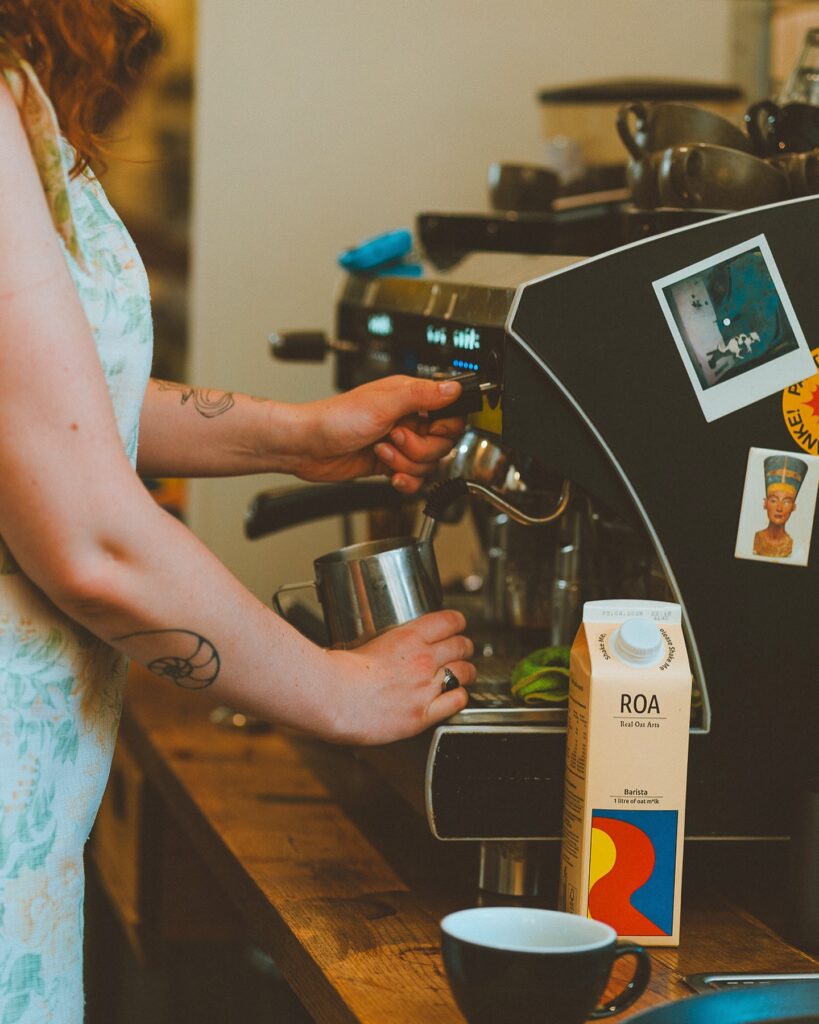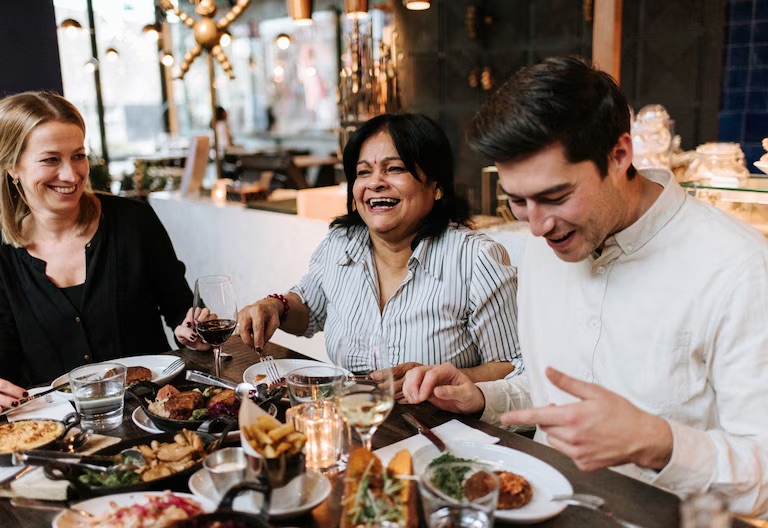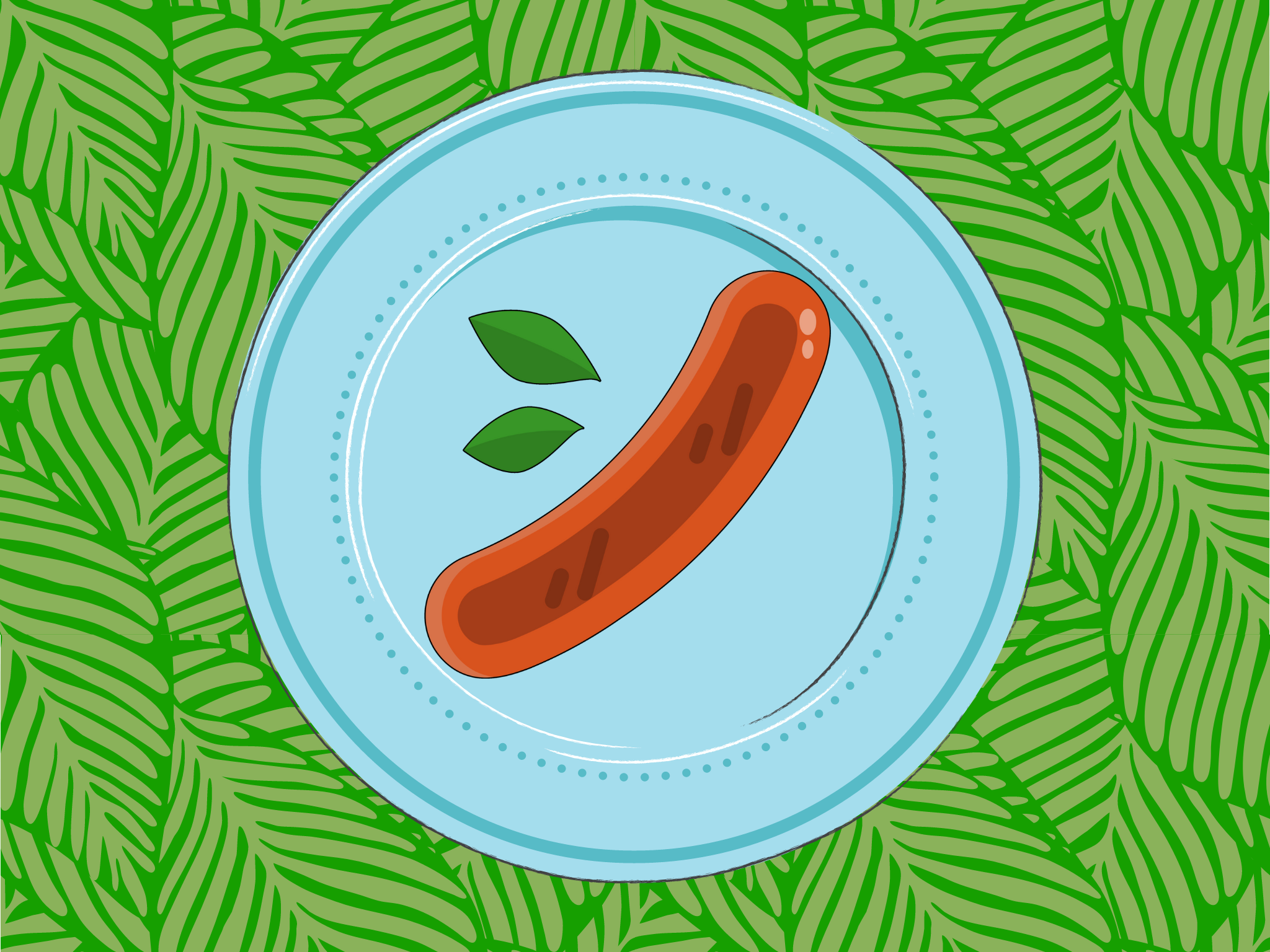4 Mins Read
Driven by the restaurants and corporate catering, foodservice sales of plant-based meat and dairy in the Netherlands grew by 111% and 82%, respectively, in the past two years.
In 2023, the number of meat analogues sold in Dutch foodservice channels was double the amount two years prior, just as conventional meat saw volume sales decline by 2%, according to Foodstep data analysed by ProVeg Netherlands.
Between 2021 and 2023, the volume sales of plant-based meat grew by 111%, on the back of sustained popularity in restaurants and corporate catering. Dairy alternatives, meanwhile, saw unit sales increase by 82% in the same period.
These new figures mean vegan analogues accounted for 4.3% of the overall meat market and 7.4% of the dairy sector – for the first time, the share of these products in foodservice is higher than in the retail sector.
Dutch foodservice sector embraces plant-based dairy

When looking at the data longer term, the volume sales of conventional dairy have shrunk sharply, according to ProVeg Netherlands. The organisation suggests the segment never recovered from the foodservice dip experienced by the entire industry during the Covid-19 lockdowns, which saw many restaurants close both temporarily and permanently. Sales of these products have only reached 78% of pre-lockdown levels.
On the other hand, plant-based dairy has become more popular. Milk alternatives alone saw a 92% rise, and their popularity in the quick-service sector was thanks to the 123% hike in volume sales of plant-based barista milks. These products made up two-thirds (68%) of all ‘frothable’ milk sold in sandwich shops, snack bars and cafés.
But there is a caveat – most QSRs and coffee shops use whole milk instead of specially crafted barista milk. So when accounting for this, nearly 20% of milk used in this foodservice segment is plant-based. And this is dominated by oat milk, which is responsible for 12% of the share.
Meanwhile, margarine and butter alternatives saw a smaller growth of 7% between 2021 and 2023, but already account for 63% of the market. Vegan cheese and ice cream, however, has a long way to go: despite volume sales rising by 113% and 227%, respectively, these products still only make up 0.9% and 0.4% of cheese and ice cream sold to the foodservice sector in the Netherlands.
The largest growth for plant-based products in this period came from the cooking cream segment. Accounting for 12% of the overall market, volume sales of vegan cooking cream skyrocketed by 320%. The volume share of these products is even larger in the education (37%) and corporate catering (21%) sectors.
“Most products still have a long way to go. But plant-based cooking cream is already well on its way to becoming just as ubiquitous a plant-based basic product in catering as margarine,” said Martine van Haperen, foodservice expert at ProVeg Netherlands.
Caterers turn to exclusively plant-based options

When it comes to plant-based meat, bitterballen (Dutch croquettes) have witnessed the biggest rise (201%) between 2021 and 2023, while croquettes have grown by 50% in volume sales. The market share for meat analogues is highest in the education sector (9.5%) – here, vegan versions account for 22% of all bitterballen sold.
Likewise, traditional plant proteins have become more popular too, with legumes growing by 33% in Dutch foodservice. Lentils (69%) saw the biggest rise, followed by chickpeas (67%) and other beans (25%).
Vegan mayo and fries sauce represent another food group with explosive growth, with sales up by 244% and accounting for 3.5% of the overall market. In corporate catering, though, their share is already at 8%.
“What these products have in common is the high one-on-one replaceability with the animal alternative,” explained van Haperen. “More and more caterers only offer vegetable cream, mayonnaise or bitterballen. That is much easier and more environmentally friendly than offering animal and vegetable options separately, especially because the consumer hardly tastes the difference.
She added that the high volumes can be attributed to the strict sustainability targets of Dutch foodservice companies – 16 caterers have committed to have at least 60% of all proteins sold be plant-based by 2030, an effort led by animal rights group Wakker Dier. These include Van Leeuwen Catering, Vermaat Groep, Albron, Hutten and Compass Group.



